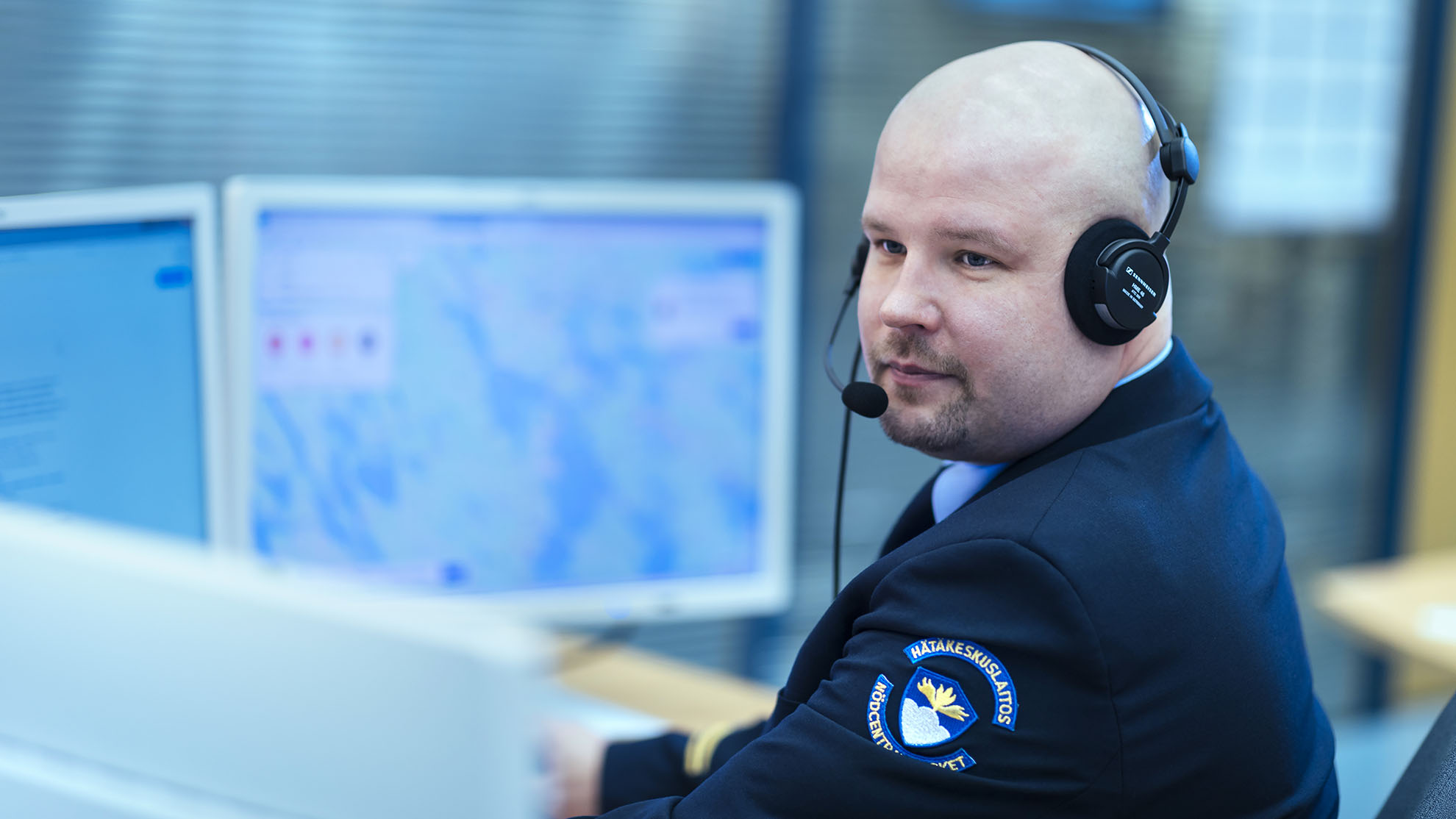
Handling emergency calls
What is an emergency call?
An emergency call can be made by
calling the emergency number 112 or
sending an emergency text message.
In addition, the eCall emergency response service and fire and burglar alarm systems automatically report emergencies. In the future, real-time text (RTT) will also become possible.
An emergency call can be made at any time of the day.
How your emergency call will be handled
Receiving the emergency call
An emergency call is created when the person reaches an emergency response centre (ERC) operator.
Performing a risk assessment
When the emergency number is answered, the ERC operator will immediately begin to form an understanding and risk assessment of the situation. The risk assessment is based on instructions by authorities involved in the work of emergency response centres (police, rescue services, emergency care, social services and the Border Guard) on the handling and forwarding of tasks.
The main purpose of the risk assessment is to classify tasks so that the ERC operator can identify the most urgent tasks, allocate the resources of the authorities correctly, and exclude tasks that do not require urgent official assistance.Alerting the authorities
The outcome of the risk assessment, location of the emergency and other additional information, such as the number of casualties, serve as the basis when alerting the authorities. The alert is based on alerting instruction issued by the relevant authority (police, rescue services, emergency care, social services and the Border Guard), including information on which units are needed in each situation.
As the handling of the task progresses, the ERC information system proposes to the operator the nearest and necessary units to which the task should be assigned.
If the task does not result in an alerting the authorities, the ERC operator will inform the caller and guide them in resolving the situation. If necessary, the operator may instruct the person to call the non-emergency number 116 117 or file a report of an offence to the police, for example.
Performing the risk assessment does not delay access to help, as the authorities can be alerted already during the emergency call based on the initial information.
During and after an emergency call
There is no need to prepare for the emergency call in advance. Professional ERC operators will take you through the call and ask the necessary specifying questions.
During the call, listen carefully to the operator’s instructions and answer any questions. Information obtained during the emergency call helps ensure that the right help is received for the situation.
After an emergency report, it is a good idea to keep your phone nearby and the line open in case the authorities need further information to resolve the situation. Calls from the authorities may come from an unknown number.



